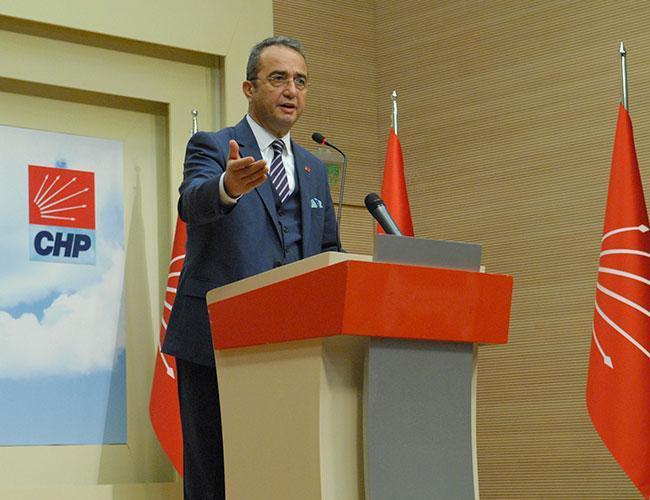
The main opposition Republican People’s Party (CHP) will appeal to the Constitutional Court regarding a controversial enactment law that authorizes the cabinet of ministers to make legislation without parliamentary supervision.
“This law openly violates the constitution and it is a seizure of the authority of parliament. We will appeal to the Constitutional Court on this subject on Monday [May 14],” CHP Spokesperson Bülent Tezcan said on May 11.
His comments came a day after Turkey’s parliament authorized the cabinet to make legislative changes and to issue decrees on a wide range of subjects related to public institutions and the authorities of the Prime Ministry.
With the law, the cabinet will be able to pass harmonization of current legislation in line with the controversial constitutional amendment approved in the April 2017 referendum, to make regulations on the establishment of public institutions and associations, and to redefine institutions under the Prime Ministry. It also authorizes the cabinet to make changes and regulations on articles regarding the president’s executive authority, and it will be valid until the snap presidential and parliamentary elections to be held on June 24.
The law was passed in parliament amid fierce objection of deputies from the opposition CHP and the Peoples’ Democratic Party (HDP), who argued that the enactment surpasses the parliamentary procedure to make legislation and is against the constitution.
According to the constitution, legislative changes must first be submitted to parliament before being referred to the related constitutional parliamentary commission. After due assessment by the commission, the draft is submitted to parliament’s General Assembly for MPs’ discussion and then voted on.
Deputy Prime Minister Bekir Bozdağ defended the law, saying the harmonization of current legislation needs a new procedure as snap elections will be held on June 24.
“Because the election has been brought forward there is no possibility of referring these changes to parliament, assessing them in the commissions and discussing them in the General Assembly. That is why it was not an option for the government, it was a necessity,” Bozdağ said.
He added that with the enactment 40 of 80 decrees will be changed, 2,483 articles will be lifted, and 2,470 articles will be amended.
Harmonization is necessary ahead of the shift to the new governance system after the June 24 elections, when the new constitution that was narrowly approved in the April 2017 referendum - marred by allegations of voting irregularities - will go into full effect and the president-elect will have the executive authority to issue presidential decrees.
CHP spokesperson Tezcan criticized the enactment law arguing that the ruling Justice and Development Party (AKP) “aims to take the harmonization laws away from parliament and prepare Turkey for a one-man regime.”
“They are trying to build a new system by bypassing parliament,” he added.
The law will be valid until the new executive system fully goes into effect with the election of the president on June 24, or July 8 in the event of a second round.
It is their right: PM
Prime Minister Binali Yıldırım said the CHP “has the right to appeal” to the Constitutional Court while vowing that the regulation “is totally within the constitutional framework.”
“The regulation is a need for the implementation of the constitutional amendment approved by the April 2017 referendum. It has been done within the constitutional framework. We are comfortable with this,” Yıldırım told reporters on May 11.